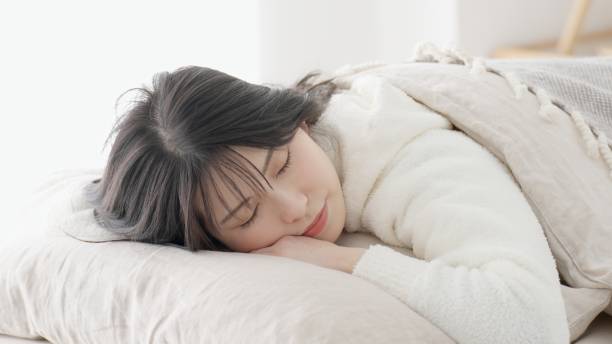For decades, sleep researchers and public health advocates have echoed the same refrain: eight hours of sleep per night is the gold standard for good health. But what if this universal sleep prescription is more of a cultural ideal than a biological necessity? A sweeping new study published in Proceedings of the National Academy of Sciences (PNAS) challenges this orthodoxy—and in doing so, reveals how deeply our health is entwined with cultural context.
Led by Steven Heine, a social and cultural psychologist at the University of British Columbia, the study spans continents and cultures, examining the sleep habits of thousands of people across more than 70 countries. Its conclusion: the “right” amount of sleep isn’t the same for everyone. Instead, people may be healthiest when their sleep aligns with what’s considered normal or ideal in their culture—even if that ideal defies the eight-hour benchmark.
A Global Puzzle
The inspiration for the study emerged from a paradox that Heine observed during his time living in Japan. “People in Japan sleep less than in many other countries,” he noted, “yet Japan boasts the longest average lifespan in the world.” How could one of the world’s most sleep-deprived populations also be among the healthiest?
To explore this, Heine and his team conducted two massive investigations. The first looked at national averages of sleep from 14 global datasets. These came from various sources—sleep-tracking apps, smartphone accelerometers, wearable devices, and surveys—and together they offered a panoramic view of sleep behavior across cultures. The researchers compiled 353 national averages and cross-referenced them with health indicators like obesity rates, cardiovascular disease, diabetes prevalence, and average life expectancy.
What they found was startling. Countries with shorter average sleep durations did not show worse health outcomes than those with longer sleep. In fact, the data suggested a counterintuitive trend: countries where people slept more tended to have higher rates of obesity. This finding flies in the face of decades of individual-level studies linking short sleep with negative health.
But this wasn’t a simple contradiction. Rather, it pointed to something deeper—something many global-scale studies ignore. When it comes to sleep and health, context matters. Cultural context.
Beyond Averages: The Individual Study
The second part of the study shifted focus from national averages to individual experiences. Researchers surveyed nearly 5,000 adults between the ages of 25 and 60 across 20 countries. Participants reported how much they slept, both on the previous night and on average, including naps. They also shared detailed information about their physical health, chronic conditions, mental well-being, and lifestyle habits like smoking and drinking.
Importantly, respondents were also asked to estimate how much sleep they believed people should get in their country—what they perceived as their culture’s “ideal” sleep duration. This simple but powerful question allowed the researchers to examine whether alignment between personal sleep habits and cultural expectations influenced health.
It did. Strongly.
Health Is Where the Heart—and Sleep—Is
The data revealed a U-shaped curve: both very short and very long sleep were associated with poorer health outcomes. This was consistent with prior research. But what was new—and striking—was how the turning point of that U-shaped curve varied by country. In other words, the “optimal” amount of sleep for health was not a universal number. It shifted depending on the cultural environment.
In France, where long sleep is culturally accepted, people averaged much more sleep than in Japan. Yet in both countries, individuals who slept close to their local cultural norm tended to report better physical and mental health. It wasn’t just about how many hours they slept—it was about how right those hours felt within their cultural context.
This alignment, or cultural fit, appears to carry real health benefits. “We often think of sleep as a purely biological function, but this research suggests that it’s also deeply social,” Heine explained. “People may feel healthier when their behavior matches the norms around them—even for something as personal as sleep.”
The Hidden Architecture of Sleep Norms
Why would culturally appropriate sleep feel better than biologically “optimal” sleep? The answer may lie in how social expectations structure our daily lives. In cultures where early rising is the norm, people who sleep in may feel lazy or anxious—even if they’re meeting their body’s needs. In places where long naps are standard, skipping them might mean missing out on valuable rest or social cues.
Moreover, cultures influence not just how long we sleep, but how we sleep. Do people sleep in one uninterrupted block or in segmented phases? Are naps encouraged or stigmatized? Are bedrooms quiet sanctuaries or shared spaces buzzing with life? These variations can affect not just our perception of rest but its biological quality.
Some of the most intriguing open questions now concern sleep architecture—how much time people spend in various stages like deep sleep or REM sleep—and whether these patterns also differ across cultures. “If the Japanese can function with less total sleep, perhaps they enter deep sleep more quickly or stay there longer,” Heine speculated. Understanding such patterns could unlock new insights into what really makes sleep restorative.
The Ecological Fallacy and the Limits of Sleep Guidelines
One of the study’s most powerful takeaways is a warning against the ecological fallacy—the idea that conclusions drawn from group averages apply to individuals. Just because a country has a short national sleep average doesn’t mean its people are unhealthy, and vice versa.
That’s a problem for global health guidelines that often promote one-size-fits-all prescriptions. Telling everyone to aim for eight hours may ignore not only personal variability but also cultural context. A sleep-deprived office worker in Seoul may not respond to sleep advice the same way a siesta-taking artisan in Barcelona does.
Public health campaigns, the researchers suggest, should be careful about imposing universal ideals. Instead, they might benefit from recognizing cultural diversity and encouraging people to sleep in ways that suit both their biology and their social environment.
When Sleep Is Social
At first glance, sleep seems like the most individual of behaviors. It happens in the privacy of our homes, behind closed doors, often in darkness and solitude. But this study reminds us that sleep is anything but private. It is shaped by the rhythms of society—by school start times, work hours, transport schedules, evening entertainment, and even lighting design.
If your subway starts running at 5:30 a.m., and your job expects you at your desk by 8:00, you’re unlikely to get a full eight hours unless you turn in early—something not always compatible with social life. Cultural sleep norms are carved into public routines, and resisting them can be exhausting in more ways than one.
This may explain why “cultural fit” matters. Living in harmony with societal expectations—whether by getting up early, taking naps, or sleeping longer—may ease stress, increase social cohesion, and support better overall health.
Looking Forward: From Sleep Duration to Sleep Diversity
As the field of sleep science evolves, researchers are beginning to embrace a more nuanced view. Sleep is not simply a biological process regulated by melatonin and circadian clocks. It is also a social behavior embedded in culture and history.
This study represents a paradigm shift. Rather than searching for a universal ideal, scientists are beginning to explore sleep as a flexible, adaptive behavior that responds to local environments. That includes not just culture but also climate, urbanization, technology use, and work structure.
Future research may dive deeper into how culture affects not just duration but quality—whether through more REM sleep, different circadian phase preferences, or even the emotional content of dreams. It may also explore how marginalized populations sleep differently within the same culture, or how globalized societies are blending sleep norms across traditions.
Final Thoughts: Toward a More Culturally Literate Science of Sleep
In the end, what this research underscores is that health cannot be separated from context. We are not only biological beings but cultural ones. Sleep, like language or food, carries meanings and expectations that shape how we experience the world—and how our bodies respond to it.
As Steven Heine and his colleagues have shown, when we sleep “well,” it might not just be about rest. It might be about feeling right with our world, in sync with our community, and at peace with the rhythms that cradle us into slumber. Sleep, it turns out, is not just about closing our eyes. It’s about feeling at home in our bodies, our minds, and our cultures.






